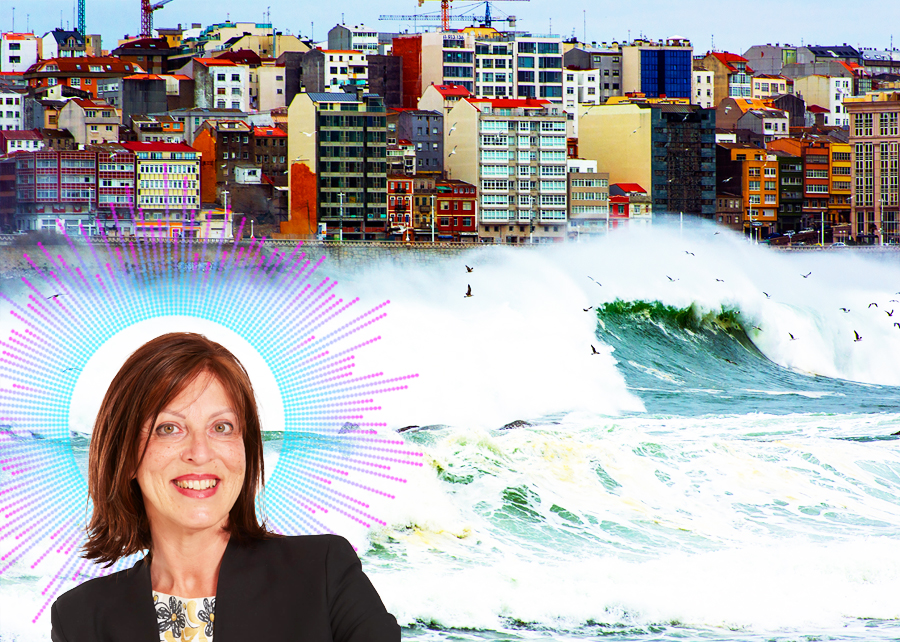The Silent Threat: WMO’s Roberta Boscolo Warns of Rising Seas and a Warming Ocean’s Fury
20 November 2025Doha: 20th of November 2025
“Every high tide now feels a bit higher than the one before.” With that vivid observation, Roberta Boscolo, Head of the Climate and Energy Unit at the World Meteorological Organization (WMO), captures the creeping dread of a planet reshaped by rising seas. In a new episode of the Al-Attiyah Foundation Podcast, “Hurricane Melissa and the Warming Oceans,” Ms Boscolo warns that while science has long sounded the alarm, society still struggles to feel the urgency.
“Sea-level rise is one of those threats that creeps upon us,” she says. “It’s slow, it’s quiet, and because it doesn’t get much attention, people often aren’t aware — or they tune out.” The danger, she adds, is not just physical but psychological: “We are facing not only a physical threat but also a communication problem.”
According to the WMO, global mean sea level has risen by about 20–25 centimetres since the early 20th century, and the rate of increase has more than doubled since the 1990s. NASA data show it is now rising at 4.4 millimetres per year, compared with 1.4 millimetres in the early satellite era. If current emissions continue, levels could climb more than half a metre by 2100, threatening hundreds of coastal cities and island nations.
Ms Boscolo notes that the oceans absorb about 90 percent of the excess heat trapped by greenhouse gases — heat that is transforming the world’s storms. “Warmer seas are impacting hurricanes,” she says. “Hurricane Melissa, which hit Jamaica recently, was Category 5. It drew enormous energy from the ocean because that area was about three degrees warmer than average.”
Hurricane Melissa made landfall in Jamaica on 28 October 2025 with sustained winds of 185 mph (298 km/h). The WMO called it “likely Jamaica’s worst storm this century.” Early estimates put the damage at more than US $6 billion, with widespread flooding and destruction across the island.
Despite these warnings, Ms Boscolo remains convinced that momentum for climate action is growing. “Clean energy keeps breaking records. Investments are increasing. Technology is moving faster,” she says. Yet she dismisses the idea of a single “hero technology.” Instead, she advocates “a smart mix,” highlighting the role of artificial intelligence in integrating renewable energy, improving forecasts, and making power grids “smarter and more reliable.”
Her team’s work also focuses on helping vulnerable communities. “We bring tailored climate services to sectors like energy, agriculture, and water,” she explains, citing projects in Africa and South America that help farmers and energy operators manage droughts and floods.
Born in Chioggia, a small island in the Venetian Lagoon, Ms Boscolo feels the issue personally. “It’s a beautiful place, like a little Venice, but very fragile,” she says. “Every high tide now feels a bit higher than the one before.”
Even so, she ends on a note of hope: “Climate change is a big challenge, but it’s not unsolvable. We have the science, the technology, and the creativity to build a safer, cleaner future — we just need the courage to act and the wisdom to work together.”
To listen to the full conversation, visit abhafoundation.org or its YouTube channel.
